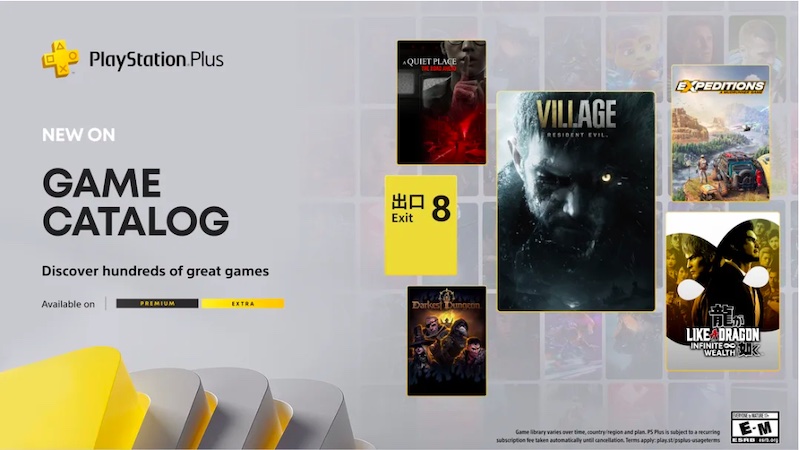How Competitive Gaming Is Turning Entertainment into a Global Market

Competitive gaming has fundamentally changed the meaning of play. Once focused primarily on winning local trophies or streaming niche matches, competition is now a living economy where every player, viewer, and developer contributes to a massive, global system of value creation. As one of the world’s leading platforms, PlayStation sits right at the centre of this profound transformation.
Over the past few years, global spending on gaming has soared, driven by shifting consumption habits. Digital sales now dominate PlayStation’s revenue streams, and massive online tournaments are driving unprecedented levels of engagement. For players, this means a constant cycle of new events, better rewards, and games that never truly stop evolving. This establishes gaming as a persistent lifestyle investment.
The Global Layer of Play
Every second spent on the PlayStation Network generates vast amounts of information: win streaks, reaction speeds, and player statistics that build unique competitive identities. This data fuels a new kind of entertainment where analytics shape how both fans and developers understand performance.
This shift toward analytics isn’t unique to gaming; it’s part of a wider global trend where real-time data has become the foundation for competition and prediction alike. Platforms such as non UK betting sites rely on real-time data to set dynamic odds and forecast performance, showing how information can define value in a global marketplace. Within PlayStation’s own ecosystem, events like the Gran Turismo World Series and EA Sports FC Pro showcase this same data-led engagement, where every stat, lap, or goal contributes to a live, evolving record of competition.
Together, these examples highlight how information and analytics now underpin competitive play, turning data into both insight and entertainment.
PlayStation’s Competitive Ecosystem
Sony’s aggressive push into live-service and competitive experiences positions PlayStation as a natural leader in this new era. Flagship professional tournaments for titles like Tekken 8, Call of Duty Challengers, and EA Sports FC now sit alongside player-focused systems like PlayStation Tournaments and PlayStation Stars. The latter systems allow users to earn digital rewards for consistency and skill, democratising the concept of competitive earning beyond the top-tier professionals.
These features hint at something much larger: a unified, interconnected PlayStation economy. The future possibilities include rewards that transfer between games, such as trophies that double as tokens in PS Stars, or cosmetic items that can be used across multiple titles. These possibilities are increasingly imminent, as Sony experiments with systems designed to reward long-term, cross-title participation across its entire library of services and content.
PlayStation Studios and UK Innovation
PlayStation’s most forward-thinking competitive projects often begin in the UK, demonstrating the region’s influence on global gaming structure. Liverpool’s Firesprite studio, acquired by Sony in 2021, has focused on developing technology that blends community-driven competition with cinematic immersion. Guildford’s Media Molecule pioneered creative collaboration and user-generated content economies through Dreams, influencing how players interact as creators rather than just consumers. Similarly, Rockstar North, the powerhouse behind Grand Theft Auto, helped define the open-world multiplayer economies that now influence competitive and live-service design across the industry.
These studios prove that innovation in play and participation is one of the UK’s strongest exports. For players globally, it means that every leaderboard, team challenge, and limited-time event is built with global competitive ambitions but local, cutting-edge creativity.
Balancing Engagement and Trust
As competitive systems become exponentially more complex, the role of trust matters more than ever to sustain the economy. PlayStation’s commitment to built-in parental controls, optional spending caps, and transparent reward systems ensures that players remain confident that the competitive challenge stays fair and accessible. The focus is on making competition feel meaningful, a complex mix of skill, strategic play, and community interaction rather than blind luck or forced consumption. This critical balance between engagement and protection is what keeps PlayStation ahead of the curve in designing long-lasting, player-first competitive economies.
From Live Service to Linked Economies
Sony’s transition toward live-service experiences has been complex, but the long-term payoff is evident. Titles like Helldivers 2, Gran Turismo 7, and Destiny 2 have all shown how a strong community foundation can sustain a game’s economy and relevance long after its initial release. Together, they represent a new kind of corporate success story, one built on constant updates, shared progress, and thriving, persistent in-game economies.
Sony leadership has made it clear that live service is a foundational, long-term investment. The goal is not just to keep players online but to create a seamless social ecosystem where content, competition, and reward flow easily across various titles. The idea of transferable rewards or shared progress across the entire PlayStation suite no longer feels far-fetched. It feels strategically inevitable.
Competition as Currency
Competitive gaming has solidified its position as the ultimate blueprint for modern entertainment and economic engagement. Every match played, every tournament joined, and every reward earned contribute to an expanding network of shared value.
For PlayStation fans, that future is rapidly taking shape. Your trophies, tournament placements, and PlayStation Stars points might soon hold more than sentimental value. They are on track to become a form of digital currency on the PlayStation Network, tangible proof that every moment spent competing is an investment in a world where skill and participation are the real drivers of a global, linked digital economy.




